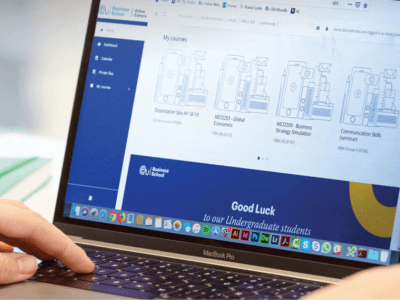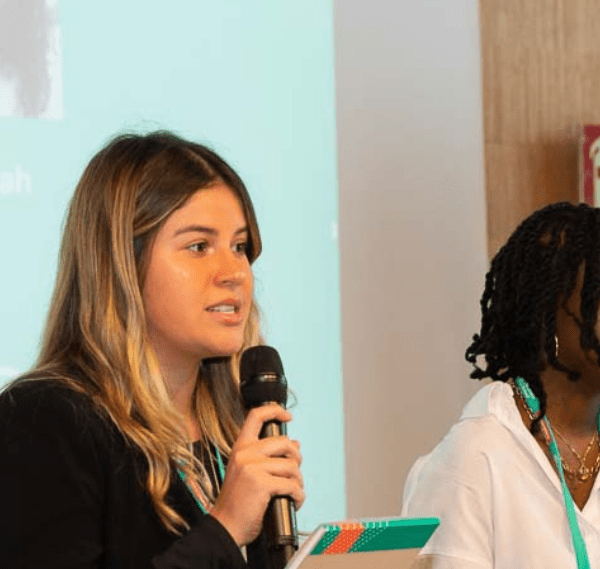What Makes You a Great Team Member?
It has to be one of the most common interview questions: how do you perform as part of a team? Yet, in the competitive world of business, it can be a tricky one to answer. After all, the question isn’t asking how great you are as an individual—it’s about how you relate to others.
Why do employers look for teamwork skills?
Almost every job involves some degree of cooperation with others.
Ultimately, the success of your employer’s endeavors depends heavily on their team successfully working together. If employees cannot effectively unite and join forces to fulfill a shared mission, then it’s unlikely that the company’s objectives will be achieved.
What makes you a great team member?
With an aggressive approach, people are less likely to speak up and share their ideas. This could result in missed opportunities.
Even if you believe someone’s idea is flawed, you should be able to hear them out and disagree respectfully. Collaborative working should never descend into personal insults or escalate into raised voices.
The ability to communicate tactfully helps you avoid potential conflicts and focus on the task at hand.
Excellent project management
When multiple people are working together on a project, responsibilities must be organized effectively and efficiently. If tasks are not delegated correctly, there may be oversights that endanger the project’s success.
There’s also the possibility that efforts overlap, and more than one person completes the same work!
Excellent project management skills will ensure each team member is allocated the correct task for their skillset and has all the materials and knowledge they need.
Team members will also have a clear understanding of their responsibilities and the deadlines they must meet.
Ability to adapt
Teamworking has the potential to take you out of your comfort zone. For example, you may be allocated a responsibility that you didn’t expect to handle, or you may be asked to work alongside someone with a very different perspective to your own.
Bosses are interested in how you’ll react to unpredictable events and new situations. If you’re someone that resists change, this could be a major obstacle to the project’s progress.
On the other hand, if you have a flexible approach, you’ll be able to keep up with the group and respond effectively to the challenges you face together. That’s why the ability to adapt is crucial.
Motivated by shared goals
It’s natural to be personally ambitious, especially in the world of business. However, there are some moments where you need to share the spotlight. If you’re obsessed with being the star of the group, this could derail the project.
Instead, you should be someone who can commit to a shared goal. Success shouldn’t always look like you “winning”; there’s value in being one of many different people who came together to make something happen.
A little bit of humility and an investment in the company’s objectives go a long way when it comes to teamwork.


Willingness to compromise
Are you a born leader and a visionary? Do you have the best ideas and the strength of character to see them through, no matter what? That’s great, but it may not be exactly what your team needs from you.
The ideal candidate on a team appreciates that everyone has something valuable to contribute. They don’t stubbornly insist that they’re correct; instead, they look for ways to incorporate a range of perspectives.
Someone willing to compromise shows they are respectful of others and happy to learn from them. These are excellent teamwork traits.
Optimistic attitude
During a teamwork project, you have to abandon a certain level of control in order to let others do their part. This can be an intimidating prospect for people who are used to assuming full responsibility for their work.
These individuals may lack faith in the project’s success, which can damage relationships between team members. Negativity and constant criticism are often toxic influences on a group project.
A can-do attitude that is solutions-focused and shows confidence in the capabilities of their colleagues is much more likely to get positive results.
Resolution of conflicts
What do you do when team members disagree with one another? Are you able to mediate between them, or are you someone who picks sides and makes the situation worse?
A team member who can resolve conflicts is a very valuable asset. People will inevitably disagree while working together on a project. How this conflict is managed will determine whether the team can still succeed or not.
Handling interpersonal difficulties requires soft skills such as active listening and a diplomatic communication style.
Knowledge about colleagues
If you insist on working entirely independently, you may never have gotten to know your colleagues. This puts you at a disadvantage when it comes to teamwork and group projects.
Pre-existing relationships can make the process of working together much more comfortable. It can also help your team make smarter decisions when it comes to delegating tasks. You’ll have a clearer idea of where people’s strengths and weaknesses lie.
The type of person who invests in their working relationships tends to thrive as part of a team.
How to answer an interview question about teamwork:


If you’re asked about your approach to teamwork, don’t just cite specific skills you have as an individual. Talk about how you interact with others. What strategies do you take to include every team member? How do you build relationships with people from diverse backgrounds?
It helps to use examples that evidence your point. Think of moments in the past where you have resolved conflicts, adapted to an unusual situation, or used your knowledge of people to work with them more effectively.
Explain what you think successful teamwork looks like, and don’t forget to relate your answer to the specific position you’re applying for!











